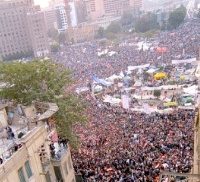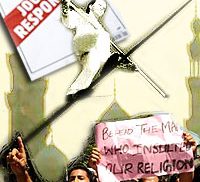The choice of Francis as his papal name by Jorge Mario Bergoglio immediately signaled the doctrinal orientation of his pontificate. Following in the footsteps of Saint Francis of Assisi, the new Bishop of Rome would uphold three guiding principles: love for the poor, care for our common home, and a commitment to a culture of encounter and peace. A commitment that his critics have sometimes labeled as populist—despite his explicit rejection of that label. Pope Francis’s outlook was, in fact, open, transnational, and pluralistic—the very opposite of European populisms. From his earliest symbolic gestures—from refusing the papal apartments to embracing migrants in Lampedusa—Bergoglio embodied a “Church that goes forth,” one that engages with the world not with doctrinal arrogance but with a spirit of service. His language, stripped of curial formalism, brought the papacy closer to the people, while the vision of the pope “from the ends of the earth” shifted the Church’s center of gravity away from Europe, toward the peripheries of the planet, and above all toward a new alliance between faiths, cultures, and peoples. In this dossier, we offer a series of reflections on the legacy of his pontificate and the future prospects of the Church.
Dossiers
- On Tuesday 22 January 2013 Israelis have gone to the polls to elect a new parliament and government. Despite the tight race between the center-left and the right wing, the vote is expected to usher in a government which will shift Israel further to the right and Benjamin Netanyahu is widely believed to retain his post, forming a coalition with a grouping of nationalist, religious and orthodox parties. This probable outcome rises the prospect of a greater diplomatic isolation for Israel and the chances of a peace deal with the Palestinians are likely to fade. For many, it seems that the only hope for improvements lay outside the domestic Israeli/Palestinian setting: maybe within Europe?
- Reset-Dialogues’ Intercultural Lexicon is back to bridge the cultural gaps, controversies and misunderstandings surrounding a large number of concepts pertaining to the political, cultural, moral, and religious discourse. A new video and Andrew Arato‘s new definitions of Civil society, Revolution and Constitution, will help us understand key events of our time: from civil society coming back to politics in Tahrir and Occupy, to the Arab Spring’s first constitutional outcomes, from Europe witnessing an unprecedented crisis in its political legitimacy to America’s divisions over the First and Second Amendments.
- The Sandy Hook Elementary School shooting is a tragedy that obliges us to question the relationship between freedom and security, between democracy and violence. Political theorist Benjamin Barber and Jim Sleeper from Yale explain why, at last, the American establishment should find the courage to defy society’s steadily advancing culture of death and to confront the powerful gun lobby that fuels and exploits it. For Giancarlo Bosetti, the discussion on the relationship between the use of freedom and responsibility aroused by this terrible event can also help us better understand the challenges newborn Arab democracies will soon have to face.
- The political transition in Egypt continues to unfold through a series of events, many of them surprising and unforeseen. While waiting for the final results of this week’s constitution referendum to come in, Reset-DOC has asked former Italian Ambassador to Egypt Francesco Aloisi de Larderel to explain uns what is happening.
- With violence once again prevailing over dialogue in Israeli-Palestinian relations, Reset-DoC still believes that a fair and lasting solution can and must be found as quickly as possible. Andrea Dessì from the Istituto Affari Internazionali (IAI) in Rome has asked five leading Israeli, Palestinian and international experts to explain us how.
- How should one assess the reaction sparked by violent minorities when faced with provocative events, such as the recent, outrageous and insulting film on Islam? And on the basis of what criteria should we understand these same events and the strategies they conceal? These and many other questions are answered by Nilüfer Göle (EHESS, Paris), Jytte Klausen (Brandeis University), and by Asmaa Mahfouz, the young Tahrir Square blogger and activist.
- The “Innocence of Muslims” case has caused reactions all over the Arab world, ranging from legitimate condemnation of the offensive film to extremist violence that led to the death of U.S. Ambassador in Libya. Almost two years after the Arab Spring uprisings and a few weeks before the American presidential elections, there are still many unknowns concerning the future of the newborn Arab democracies and their relations to the West; and just as many challenges to be faced by the United States’ diplomacy. Karim Mezran from the Rafik Hariri Center for the Middle East of the Atlantic Council of the United States explains why.
- Each cultural and denominational tradition, including Islam and other religions, is susceptible to lead to an internal elaboration of its own democratic and pluralist approach to modernity. Four leading scholars explain how and why this happens.
- Can Islam accomodate democracy? Reset-Dialogues addressed this question years ago, during the 2008 and 2009 editions of Istanbul Seminars. But today the Arab spring and the success of Islamic parties in several countries show that the relationship between Islam and democracy still is a matter of great interest. Therefore we chose three important essays from our seminars to discuss this subject in depth.
- Revolutions have brought a new season to the Arab world, one filled with promises, doubts and great expectations for democracy. Where is the region heading? Will new forms of secularism emerge? Or will religion come to dominate the new political landscape of the region? Can minorities coexist within these new realities? Resetdoc spoke to Radwan Masmoudi, director of the Center for the Study of Islam and Democracy in Washington, D.C. and with Rajeev Bhargava, director of Centre for the Study of Developing Societies in Delhi.





